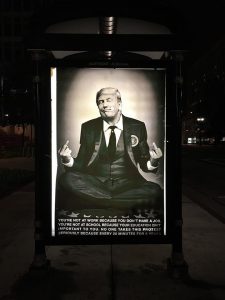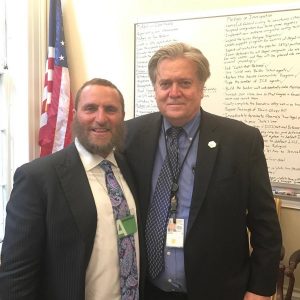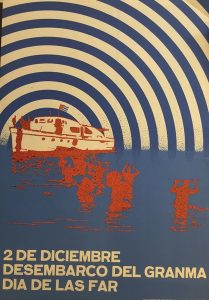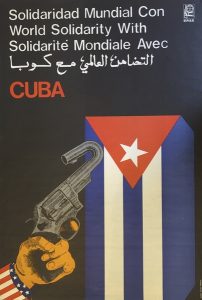Podcast: Play in new window | Download
This is Not Populism : John Bellamy Foster
Is Trump a neofascist? Thoughtful analysts on the left like Cornell West, Noam Chomsky, and Judith Butler think he is. But mainstream liberal commentators refuse to associate the Trump phenomena with fascism. They call him a right wing populist. What is neofascism? Right wing Populism? Does it really matter what Trump is called? The great German playwright and political thinker who lived in Germany during Hitler’s reign, Berthold Brecht, asked in 1935: “How can anyone tell the truth about fascism, unless he’s willing to speak out against capitalism, which brings it fourth?” We speak today with John Bellamy Foster, the editor of the venerable magazine “Monthly Review”. He wrote the lead article in the current June 2017 issue titled “This Is Not Populism.”
Guest – John Bellamy Foster is editor of Monthly Review and professor of sociology at the University of Oregon. He has written widely on political economy and has established a reputation as a major environmental sociologist. He is the author of Marx’s Ecology: Materialism and Nature (2000), The Great Financial Crisis: Causes and Consequences (with Fred Magdoff, 2009), The Ecological Rift: Capitalism’s War on the Earth (with Brett Clark and Richard York, 2010), and The Theory of Monopoly Capitalism: An Elaboration of Marxian Political Economy (New Edition, 2014), among many others.
—-
US Normalization of Relations With Cuba Reversed
On June 15th President Donald Trump traveled to Miami to condemn Cuba for gross human rights violations while he signed an executive order aimed at reversing the process of normalization of relations between Cuba and the United States that has been going on since December 2014.
Trump spoke to a dwindling base of hardened reactionaries in Miami. He accused Cuba of “spreading violence and instability “as justification to increase restrictions on the travel of Americans to Cuba and to double down on the blockade by eliminating any business dealings with Cuban state run enterprises administered by the Cuban military.
Now, for an American citizen to go to the small island 90 miles from Florida they must go in a group with a minder and report everywhere they travel and with whom they meet.
Since the success in 1959 of the Cuban revolution the United States government has been trying to reverse it and restore capitalist property relations on the island of 11 million people.
The Cuban revolution truly was a revolution and not in the Madison Avenue sense. It was not superficial but profoundly fundamental. The 99%; poor peasants, city workers, and intellectuals overthrew the 1%; the super rich, the large landowners, the owners of the utilities in mines, and their American partners – the United States and trained and supplied army and the police. The 99% took back their own country and the 1% largely move to Miami. 50,000 Cubans died in their struggle.
From then until now the policy and practice of the United States government has been to take Cuba back, change the regime, and re-introduce capitalist property relations by any means necessary.
At first, US backed terrorist torched sugar crops because land was taken from the rich and redistributed to the peasants. The US supported the assassination of teachers during the hugely successful literacy drive. The CIA introduced dengue fever and swine flu killing children and livestock awake. They supported a full-scale military invasion in 1962 known as the Bay of Pigs. It failed. The US initially succeeded and isolating Cuba politically, diplomatically, and economically.
Latin American and Caribbean governments were overthrown by the CIA if they didn’t go along with this policy. Only Mexico held out. But this tactic didn’t work. Cuba overcame the isolation. The US itself became isolated for its hostility. Then in 2014 the organization of American states told the United States that unless it allowed Cuba to re-join the United States itself was unwelcome.
So the USA, led by President Obama, changed tactics, but not its goal to restore capitalism to Cuba. In July 2015 Cuba was recognized. Embassies were opened in Havana in Washington. Trade and travel restrictions were eased.
Guest – Sandra Levinson, President and Executive Director of the Center for Cuban Studies. She was one of the Center’s founders in 1972. In 1991 Levinson spearheaded a lawsuit against the U.S. Treasury Department which resulted in legalizing the importation of original Cuban art. She is currently directing works at the Cuban Art Space, which she founded in 1999, to properly house and archive the thousands of posters, photographs and artworks which the Center has collected in the past 42 years.
Contact the Center for Cuban Studies at 212.242.0559.
———————————————————————————————




